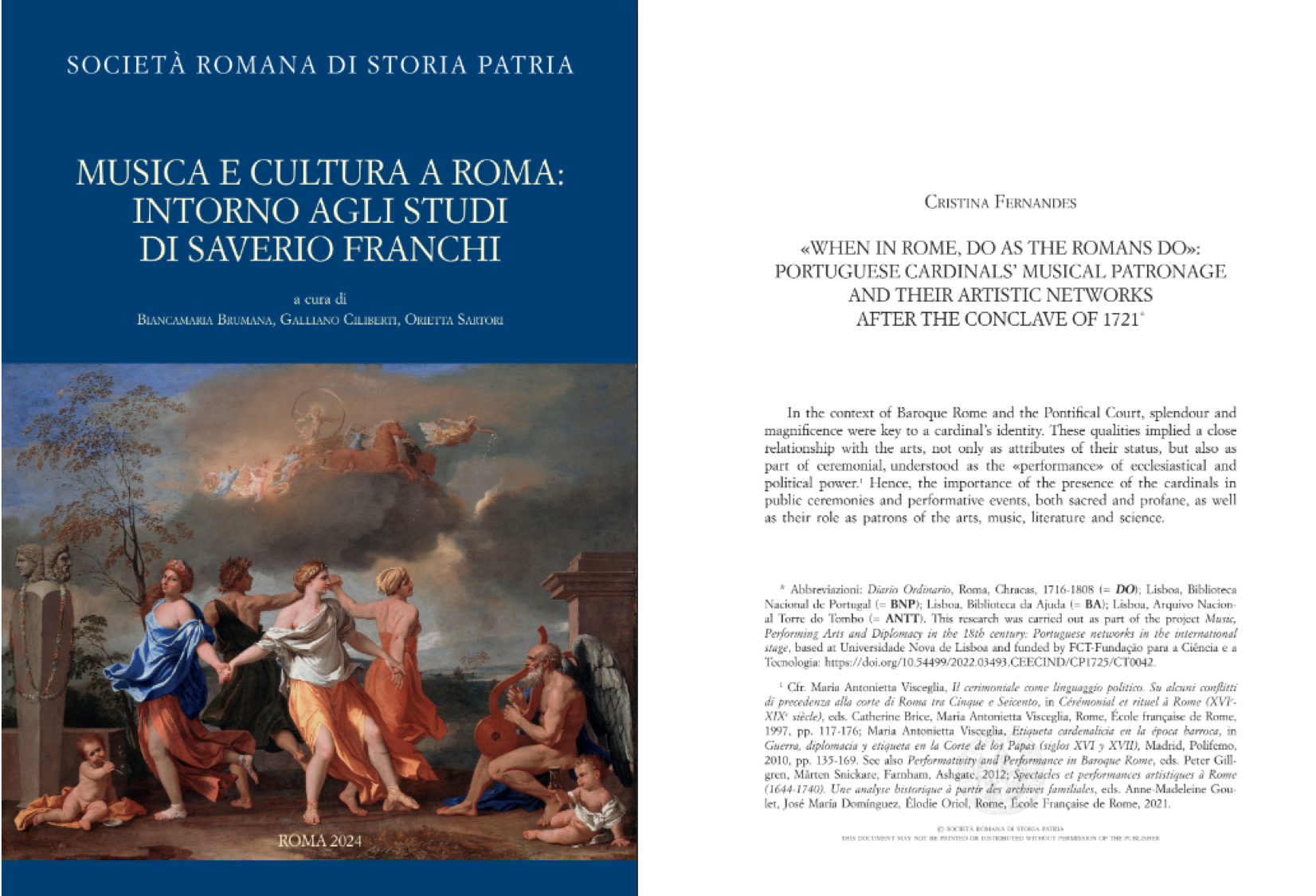Publications
Chapter | "When in Rome, do as the Romans do": Portuguese cardinals' musical patronage and their artistic networks after the conclave of 1721
Cristina Fernandes, an integrated researcher at INET-md and coordinator of the research group Historical and Cultural Studies in Music, is the author of one of the chapters of the book Musica e cultura a Roma: intorno agli studi di Saverio Franchi, edited by Biancamaria Brumana, Galliano Ciliberti, Orietta Sartori and published by the Società Romana di Storia Patria. The book is a tribute to the musicologist Saverio Franchi (1942-2014), professor at the conservatories of Perugia and S. Cecilia in Rome and lecturer at the Universities of Perugia and La Sapienza, who carried out important research on music, theatre, culture and society. His numerous publications (books, essays, encyclopaedic entries) include monumental works dedicated to the history of music and publishing in Rome and Lazio in the 16th-18th centuries. The tribute volume collects 27 essays by Italian and foreign scholars and three previously unpublished contributions by Franchi himself.

Abstract:
Despite the identification in the early 1990s of some librettos dedicated to Nuno da Cunha e Ataíde (1664-1750) and José Pereira de Lacerda (1663-1738), by Claudio Sartorio and Manuel Carlos de Brito, it was mainly through the meticulous research of Saverio Franchi, recorded in his essential work Drammaturgia Romana (1997), and later in an article on musical practices in the national church of Santo António dos Portugueses (written in collaboration with Orietta Sartori), that we became aware of the importance of the contributions of these two Portuguese cardinals in the field of music and the performing arts. This essay establishes a dialogue with Franchi’s research and expands some of the paths he opened. Historical sources found in Rome, Lisbon and Toledo contribute to providing new insights into the role of music and the arts in the cardinals' duties inherent to political and ecclesiastical representation, as well as on the artistic and social networks they established. In 1721 Cunha and Lacerda travelled to Rome to participate in the conclave that elected Michelangelo Conti (former nuncio in Portugal) as Pope Innocent XIII. Like the ambassadors and other diplomatic agents, they quickly assimilated the main features of Roman society and assumed a key role in the representation of the Portuguese Crown. Besides the artistic and ceremonial investment related to their titular churches (Sant’Anastasia and Santa Susanna), they became members of Accademia dell’Arcadia and were promoters and commissioners of musical works performed in their residences and in other venues (such as the church of Sant’Antonio dei Portoghesi, the Collegio Romano, the Collegio Clementino and the Teatro Capranica), involving composers such as Alessandro Scarlatti, Carlo Cesarini, Francesco Gasparini, Giuseppe Orlandini and Giuseppe Amadori. The study also discusses the impact of their Roman experience after the return to Lisbon and the motivations (political strategy or musical taste?) that would have been behind their actions.




